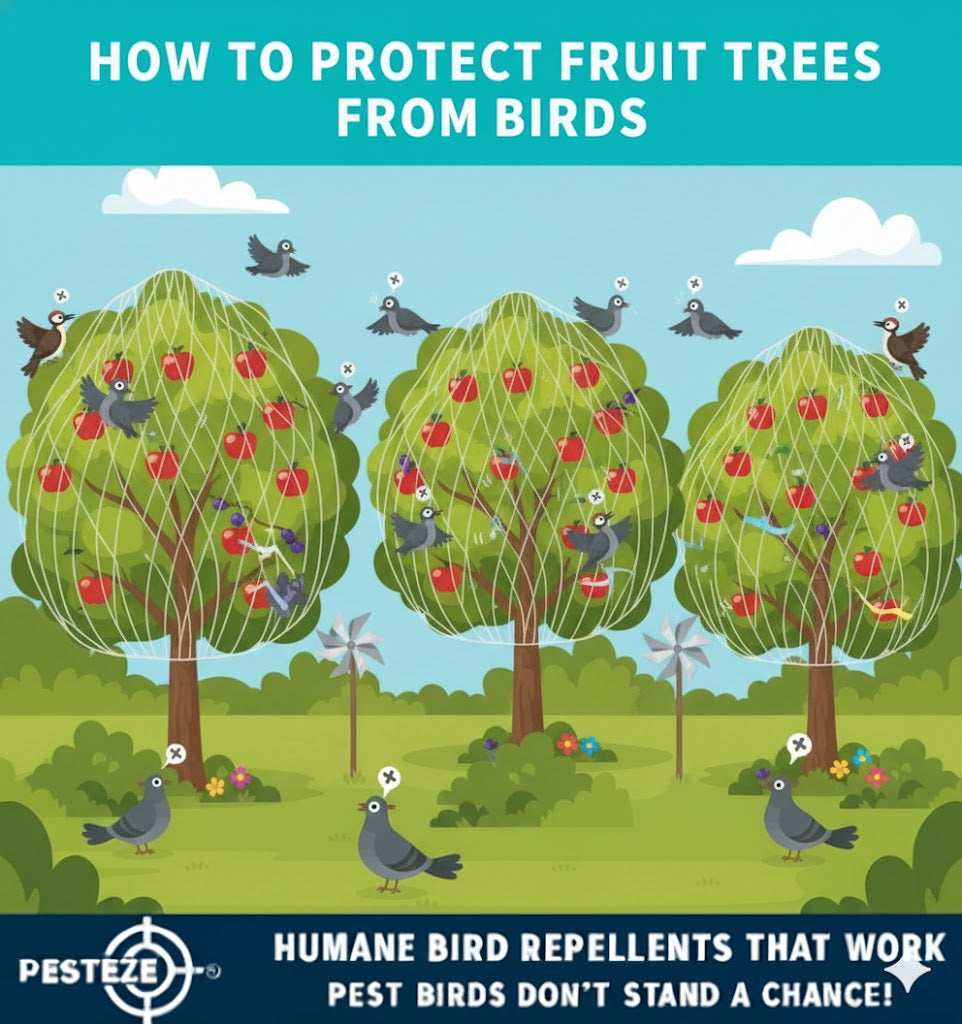HOW TO PROTECT FRUIT TREES FROM BIRDS

HOW TO PROTECT FRUIT TREES FROM BIRDS
SUMMARY
Birds can damage fruit trees by eating ripening fruit, pecking at branches, and creating unsanitary conditions. Using humane deterrents, physical barriers, and strategic tree management can protect your harvest while keeping birds safe.
FEATURES
Humane Solutions: Protect fruit trees without harming birds.
Harvest Protection: Reduces crop loss and fruit damage.
Low Maintenance: Durable and easy-to-use methods.
Cost-Effective: Affordable options for backyard and commercial orchards.
Easy Installation: Quick setup of nets, tapes, and visual deterrents.
Eco-Friendly: Avoids harmful chemicals or poisons.
Versatile Application: Works for apples, cherries, berries, and other fruit trees.
Long-Term Effectiveness: Combines multiple strategies for ongoing protection.
GUIDE DESCRIPTION
Birds are naturally attracted to fruit trees as a food source, which can lead to significant crop loss and damage. Protecting your fruit trees requires a combination of physical barriers, visual deterrents, and strategic management techniques.
Netting is the most effective physical barrier. Drape bird netting over trees, securing it around the trunk or the base to prevent birds from accessing branches. Fine mesh works best to keep even small birds away while allowing sunlight and air circulation.
Visual deterrents include reflective tape, hanging CDs, scare balloons, or predator decoys like owls or hawks. These items create movement and flashes of light that birds associate with danger. Rotating and repositioning visual deterrents regularly prevents birds from becoming accustomed to them.
Auditory deterrents can supplement visual strategies. Motion-activated sprinklers or noisemakers startle birds and encourage them to avoid the area. Use these devices sparingly to avoid disturbing neighbors or pets.
Alternative food sources can help reduce bird pressure on fruit trees. Installing bird feeders with seeds or suet away from trees can redirect birds’ attention, reducing damage to ripening fruit.
Tree maintenance also plays a role. Prune branches to reduce hiding spots, and remove fallen or rotting fruit promptly to avoid attracting birds. Healthy, well-maintained trees are easier to protect and less likely to suffer significant losses.
By combining netting, visual and auditory deterrents, alternative feeding options, and proper tree care, fruit trees can be protected in a humane and effective way. These methods reduce crop loss, maintain healthy trees, and ensure that birds are not harmed in the process.
- Smrithi Art


Comments 0